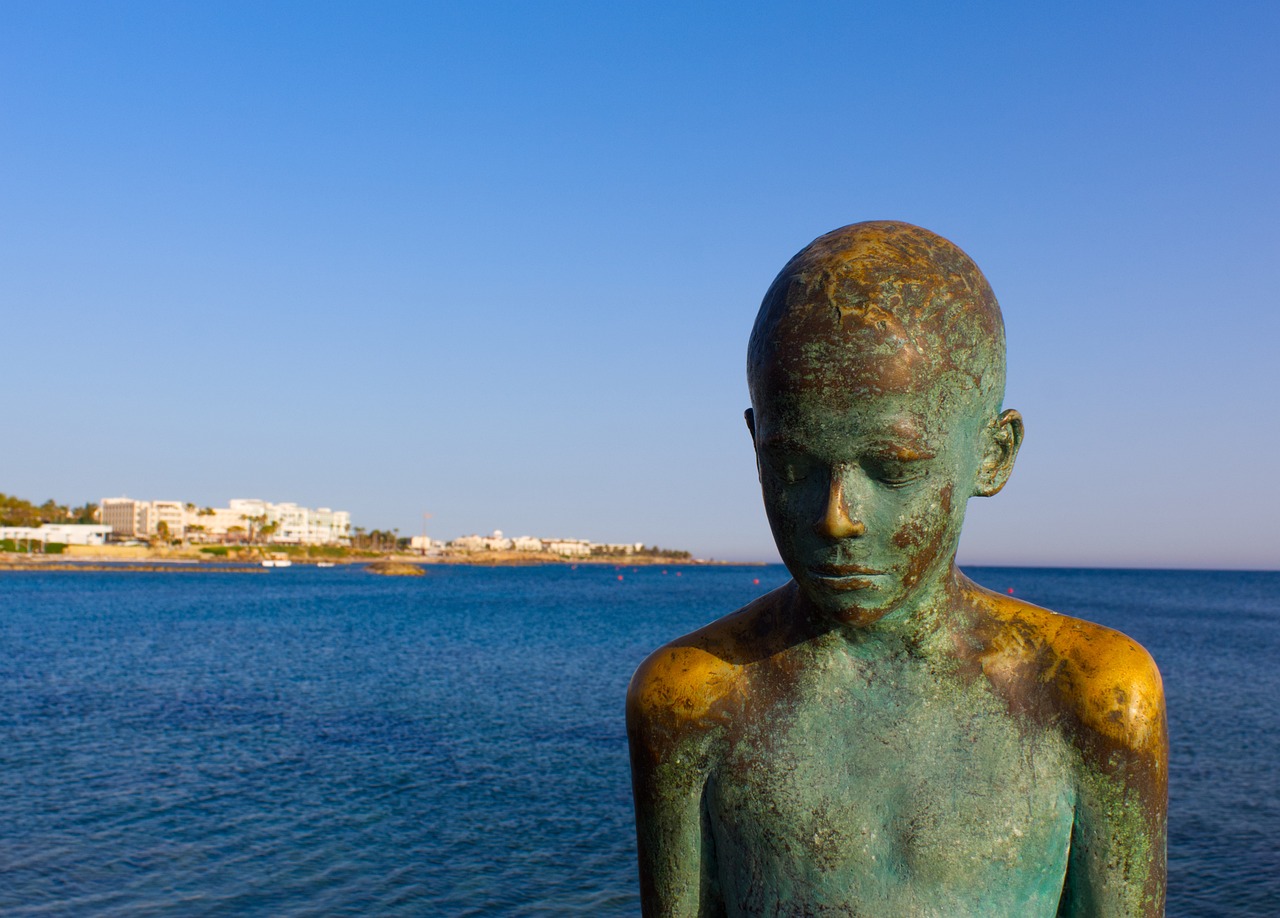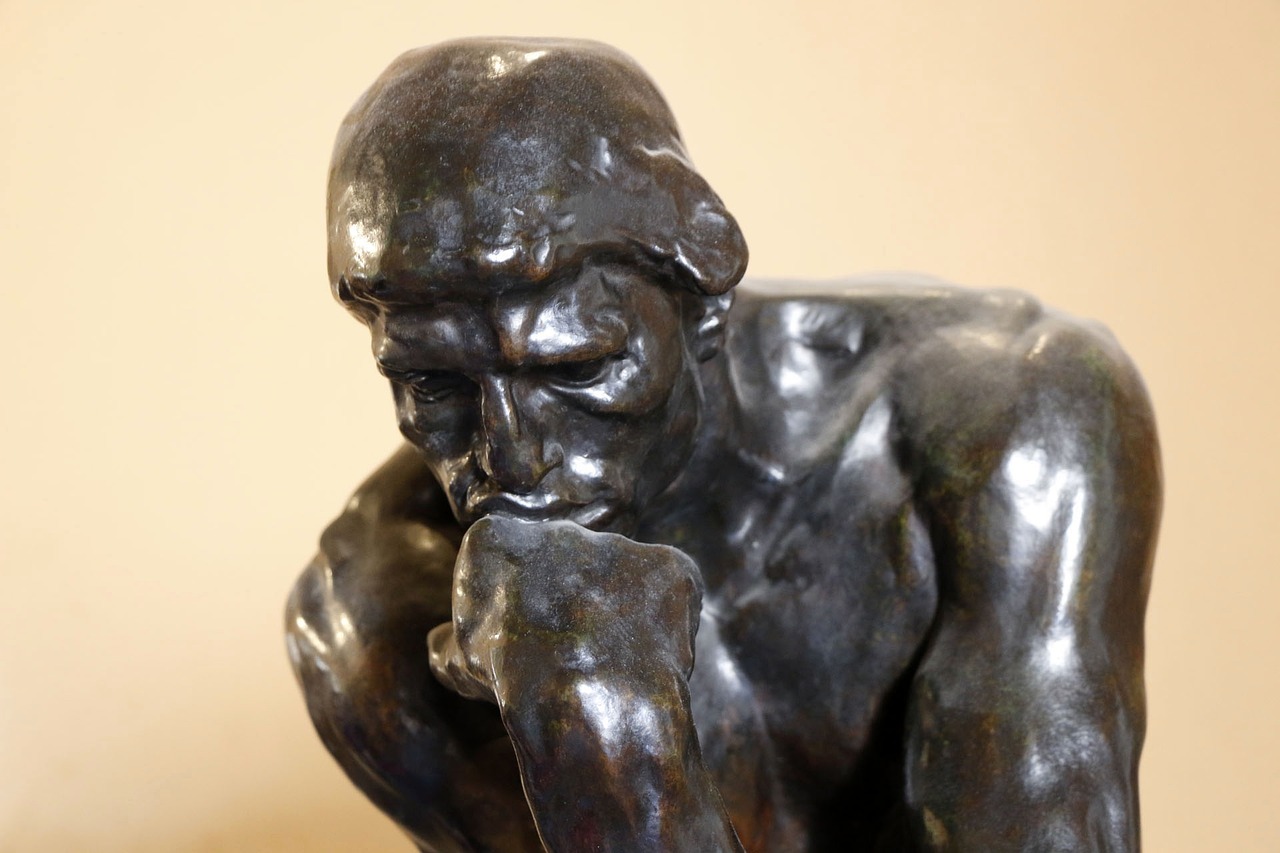Philosophy as the Cornerstone of Political Decisions
When we dive into the world of politics, it’s easy to get lost in the chaos of debates, policies, and the ever-changing landscape of governance. However, beneath this tumult lies a profound foundation: philosophy. Philosophy is not just a dusty old book on a shelf; it’s the very bedrock upon which political ideologies are built. Every political decision, every law enacted, and every policy proposed is influenced by philosophical principles that shape our understanding of justice, rights, and the common good.
Imagine a world without philosophy guiding our leaders. It would be like a ship sailing without a compass—directionless and prone to disaster. Political philosophy provides that compass, offering frameworks through which we can evaluate the implications of decisions made by those in power. It prompts critical questions: What is justice? What rights do individuals possess? How should power be distributed? These inquiries are not merely academic; they resonate deeply within the fabric of society, affecting our daily lives and interactions.
The interplay between philosophy and political decision-making is especially evident in the way leaders justify their actions. For instance, when a government decides to implement a new policy, it often references ethical theories or philosophical doctrines to legitimize its choices. This is where the rubber meets the road—where abstract ideas translate into tangible actions that impact millions.
Consider the concept of the social contract, popularized by philosophers like John Locke. This idea suggests that governments derive their authority from the consent of the governed. It's a powerful notion that underscores the importance of individual rights and collective responsibility. When leaders ignore this principle, they risk alienating the very citizens they are meant to serve. Thus, the philosophical underpinnings of political theory are not just theoretical musings; they are essential for maintaining a healthy democracy.
Furthermore, the ethical dilemmas faced by politicians often require them to navigate complex philosophical terrain. Should they prioritize the greatest good for the greatest number, as utilitarianism suggests? Or should they adhere to a deontological approach, focusing on the morality of actions themselves regardless of the outcomes? These are not just academic debates; they are the real-life challenges that shape our world.
In modern times, the influence of contemporary political philosophies—such as liberalism, conservatism, and socialism—illustrates the diverse perspectives that continue to shape governance. Each ideology brings its own philosophical assumptions to the table, affecting how we view rights, responsibilities, and the role of the state. As these ideologies clash, they create a vibrant, albeit sometimes contentious, political landscape that reflects the ongoing dialogue between philosophy and governance.
In conclusion, philosophy is not just an abstract concept reserved for academic discussions. It is the very foundation of political decision-making, influencing how we understand justice, governance, and our roles as citizens. As we continue to grapple with complex social issues, it is vital to remember that the philosophical debates of yesterday will resonate in the political decisions of tomorrow. By engaging with these ideas, we empower ourselves to participate more actively in the political process, ensuring that our voices are heard and our rights are respected.
- What is the role of philosophy in politics? Philosophy provides the foundational principles that guide political ideologies and decision-making processes.
- How do philosophical ideas influence governance? Philosophical concepts shape the values and ethics that inform laws, policies, and political actions.
- Can political decisions be made without philosophical considerations? While decisions can be made without explicitly referencing philosophy, the underlying principles often reflect philosophical ideas, whether acknowledged or not.

Historical Context of Political Philosophy
The roots of political philosophy stretch back to ancient civilizations, where thinkers began to ponder the nature of governance, justice, and the role of individuals within society. From the time of the Greeks, who laid the groundwork for many modern political theories, to the Enlightenment thinkers who challenged existing norms, the evolution of political philosophy has been a dynamic journey. Understanding this historical context is crucial, as it helps us grasp how past ideologies have shaped contemporary political systems and our current views on governance.
In ancient Greece, philosophers like Plato and Aristotle explored the concept of the ideal state. Plato, in his work "The Republic," proposed a society governed by philosopher-kings, believing that only those with wisdom and knowledge could lead effectively. Aristotle, on the other hand, took a more pragmatic approach, emphasizing the importance of the middle class and the role of citizens in governance. These foundational ideas set the stage for ongoing debates about the best forms of government.
Fast forward to the Renaissance and Enlightenment periods, where thinkers such as Thomas Hobbes, John Locke, and Jean-Jacques Rousseau introduced revolutionary concepts. Hobbes argued for a strong central authority to prevent chaos, while Locke's social contract theory emphasized individual rights and the necessity of government by consent. Rousseau, with his ideas on the general will, sparked discussions about democracy and collective sovereignty. These contributions not only influenced political thought but also laid the groundwork for modern democratic systems.
As we moved into the 19th and 20th centuries, political philosophy began to diversify dramatically. The rise of ideologies such as liberalism, socialism, and conservatism reflected varying perspectives on governance, individual rights, and societal values. Each ideology brought forth its own set of principles, challenging existing power structures and advocating for reforms. For instance, socialism emerged as a response to the inequalities brought about by capitalism, while liberalism sought to protect individual freedoms and promote democratic governance.
Today, the historical context of political philosophy remains relevant as we navigate complex global issues. The interplay between tradition and modernity continues to shape political discourse, making it essential to understand the philosophical underpinnings that guide our leaders and influence public policy. As we face challenges like globalization and climate change, revisiting these philosophical debates can provide valuable insights into how we might approach governance in a rapidly changing world.
In summary, the historical context of political philosophy is not just a study of the past; it's a lens through which we can examine contemporary political realities. By understanding how earlier thinkers approached issues of governance, justice, and individual rights, we can better appreciate the complexities of today's political landscape and the ongoing evolution of our societal structures.
- What is political philosophy? Political philosophy is the study of fundamental questions about the state, government, politics, liberty, justice, and the enforcement of a legal code by authority.
- Who are some key figures in political philosophy? Some key figures include Plato, Aristotle, John Locke, Thomas Hobbes, and Karl Marx, each contributing significantly to the development of political thought.
- How does historical context influence modern political thought? Historical context provides a framework for understanding how past ideas and events shape contemporary political ideologies and practices.

Key Philosophers and Their Contributions
Throughout history, political philosophy has been shaped by the ideas of several key thinkers whose contributions continue to resonate in today's political discourse. These philosophers have not only provided frameworks for understanding governance but have also influenced the very fabric of political ideologies that govern our societies. Their thoughts serve as lenses through which we can analyze current political systems and the ethical dilemmas they face. Let's explore some of these pivotal figures and their enduring impact.
Plato, one of the most influential philosophers in Western thought, envisioned a society governed by philosopher-kings. In his work, "The Republic," he argues that the ideal state must be led by those who possess wisdom and the ability to discern the greater good. Plato believed that only individuals who understand the Form of the Good could make decisions that would lead to a just society. This notion of governance rooted in philosophical wisdom raises intriguing questions about the qualifications of leaders and the relationship between knowledge and power in contemporary politics.
At the heart of Plato's philosophy is the concept of justice, which he defines as a harmonious structure where everyone performs their designated role. This idea is intimately connected to the notion of the good life, suggesting that a just society fosters individual well-being. By prioritizing collective harmony over individual desires, Plato's framework encourages us to reflect on how modern governance can balance personal freedoms with social responsibility. The implications of this philosophy are profound, as they challenge us to consider what it truly means to live well in a society.
Despite its allure, Plato's ideal state has faced significant critiques, particularly from his student, Aristotle. Aristotle argued that Plato's vision is impractical, as it overlooks the complexities of human nature and the realities of political life. He posited that governance should be more democratic and responsive to the needs of the populace. This critique highlights the ongoing tension between idealism and realism in political theory, urging us to consider how philosophical ideals can be reconciled with the messy realities of governance.
Shifting gears to the Enlightenment, we encounter John Locke, whose social contract theory revolutionized the understanding of political authority. Locke proposed that governments are formed through the consent of the governed, emphasizing the importance of individual rights and liberties. His ideas laid the groundwork for modern democracy and the concept of human rights, challenging the divine right of kings and advocating for a government that exists to serve its citizens. This shift towards individualism remains a cornerstone of contemporary political thought, influencing debates on civil liberties and the role of government in personal lives.
Locke's assertion that individuals have the right to overthrow a government that fails to protect their rights resonates strongly in today's political climate, where movements for social justice and reform are prevalent. His ideas encourage us to consider the moral obligations of those in power and the rights of citizens to demand accountability.
In summary, the contributions of these key philosophers—Plato and Locke—have profoundly shaped our understanding of governance and ethical decision-making. Their ideas continue to inspire debates and discussions, making it essential for us to engage with these philosophical foundations as we navigate the complexities of modern politics.
- What is the importance of political philosophy? Political philosophy provides frameworks for understanding governance, ethics, and the rights of individuals, helping us navigate complex political landscapes.
- How do Plato's ideas influence modern governance? Plato's emphasis on wisdom in leadership encourages contemporary discussions on the qualifications of political leaders and the ethical implications of their decisions.
- What role does individual rights play in political philosophy? Philosophers like John Locke highlight the importance of individual rights, which are foundational to modern democratic systems and discussions on civil liberties.

Plato's Ideal State
Plato's vision of an ideal state is a fascinating concept that has sparked debates for centuries. In his seminal work, The Republic, he introduces the idea of philosopher-kings—rulers who possess both wisdom and virtue. Plato argues that only those who truly understand the nature of justice and the good life are fit to govern. This notion is not just about having power; it's about having the moral and intellectual capacity to make decisions that benefit society as a whole. Imagine a world where leaders are not swayed by personal interests or public opinion but are guided by a profound understanding of justice. Doesn’t that sound appealing?
At the heart of Plato's ideal state is the belief that governance should be rooted in knowledge rather than mere popularity or force. He posits that a well-ordered society is one where individuals fulfill their roles based on their abilities and talents. This leads to a harmonious existence where everyone contributes to the common good. To illustrate this, Plato uses the analogy of a ship, where a skilled captain—akin to a philosopher-king—navigates the crew (the citizens) towards a successful voyage (a just society). Without the captain's expertise, the ship is likely to drift aimlessly, much like a society without wise leadership.
However, Plato's ideas are not without their critiques. Many contemporaries, including Aristotle, questioned the feasibility of his philosopher-kings, arguing that such a concentration of power could lead to tyranny. They believed that while wisdom is essential, it should not come at the expense of democratic participation. This criticism highlights a significant tension between idealism and practicality in political philosophy. Can we truly achieve a government led by the wisest, or does it risk alienating the very people it aims to serve?
In summary, Plato's ideal state proposes a governance model that prioritizes wisdom and justice, challenging us to think critically about the qualities we value in our leaders. As we reflect on his ideas, we must ask ourselves: what does it mean to lead with integrity, and how can we ensure that our political systems are designed to foster such leadership? The exploration of these questions continues to resonate in today's political discourse, reminding us that the philosophical foundations of governance remain relevant.
- What is Plato's concept of the philosopher-king? Plato's philosopher-king is a ruler who possesses both wisdom and virtue, ideally suited to govern for the benefit of all citizens.
- How does Plato's ideal state differ from modern democracies? Plato's ideal state emphasizes rule by the knowledgeable elite, while modern democracies prioritize popular sovereignty and individual rights.
- What are the main criticisms of Plato's ideal state? Critics argue that concentrating power in the hands of a few wise rulers can lead to tyranny and may not reflect the will of the people.
- Why is Plato's philosophy still relevant today? His ideas challenge us to consider the qualities we seek in leaders and the ethical foundations of our political systems.

Justice and the Good Life
When we dive into the depths of Plato's philosophy, we uncover a fascinating relationship between justice and the concept of the good life. For Plato, justice is not merely a legalistic framework; it is a fundamental virtue that shapes the very essence of a well-ordered society. Imagine a world where justice reigns supreme—a harmonious society where individuals are aligned with their true purpose. This ideal state is what Plato envisioned, and it is intricately tied to the notion of living a good life.
In Plato's view, the good life is achieved when individuals fulfill their roles within the societal structure, much like the parts of a well-tuned orchestra. Each person has a specific function, and when everyone performs their role justly, the entire society flourishes. This idea prompts us to question: What does it mean to live well? Is it merely the pursuit of happiness, or is it deeper? Plato argues that true happiness stems from living a just life, where the soul is in harmony, reflecting a balance of reason, spirit, and appetite.
To illustrate this connection, consider the following table that summarizes Plato's view of justice and the good life:
| Aspect | Justice | Good Life |
|---|---|---|
| Definition | Harmony in society through moral virtue | Fulfillment of one's true purpose |
| Key Components | Wisdom, courage, moderation | Balance of reason, spirit, and appetite |
| Outcome | Societal order and peace | Personal happiness and fulfillment |
Furthermore, Plato's exploration of justice leads us to consider the moral implications of our actions. He posits that when individuals act justly, they contribute not only to their own well-being but also to the greater good of the community. This idea resonates with many ethical frameworks today, where the focus on collective welfare is paramount. Just think about how our actions ripple through society—like throwing a stone into a pond, the effects can be far-reaching.
However, the pursuit of the good life through justice is not without its challenges. Critics of Plato, including his student Aristotle, argue that his idealism may overlook the complexities of human nature and societal dynamics. They contend that while striving for justice is noble, the reality is often messier. Life is filled with competing interests, and what one person deems just may not resonate with another. This brings us to ponder: Can we truly define justice universally, or is it inherently subjective?
Ultimately, the interplay between justice and the good life invites us to reflect on our values and actions. It challenges us to think critically about how we engage with our communities and the ethical implications of our choices. As we navigate the complexities of modern society, the questions posed by Plato remain relevant: How can we cultivate justice in our lives? And in doing so, how can we ensure that we are living our best lives?
- What is the relationship between justice and the good life according to Plato?
Plato believes that justice is essential for achieving the good life, as it leads to societal harmony and individual fulfillment. - How does Plato define justice?
Justice, for Plato, is a virtue that ensures each individual performs their role in society, contributing to the overall order and peace. - What are some critiques of Plato's theory of justice?
Critics like Aristotle argue that Plato's idealism may not account for the complexities of human nature and differing perspectives on justice.

Critiques of Plato's Theory
While Plato's vision of an ideal state, governed by philosopher-kings, is undeniably compelling, it has not escaped scrutiny. Critics argue that his model, although rooted in the pursuit of wisdom and justice, is overly idealistic and impractical. For instance, Aristotle, one of Plato's most famous students, challenged the notion that a small group of enlightened rulers could effectively govern the complexities of human society. He believed that governance should be more inclusive, reflecting the diverse interests and needs of the populace. This leads us to consider a fundamental question: can any single group truly possess the wisdom necessary to rule justly over all?
Moreover, Plato's theory raises concerns about the potential for authoritarianism. By placing so much power in the hands of a select few, there is a risk of tyranny disguised as benevolence. Critics point out that the idea of philosopher-kings, while noble in intention, could lead to a disconnect between rulers and the ruled. After all, how can a small elite truly understand the desires and struggles of the average citizen? This disconnect might foster resentment and rebellion, undermining the very stability Plato sought to achieve.
Additionally, Plato's emphasis on a rigid class structure, where each individual has a predetermined role, stirs debates about personal freedom and social mobility. Critics argue that such a system stifles individual potential and creativity. In a society where people are pigeonholed into specific roles, opportunities for personal growth and innovation are severely limited. This aspect of his theory begs the question: should governance prioritize the collective good at the expense of individual rights and aspirations?
Furthermore, Plato's idealism fails to account for the messy realities of human nature. His belief in the inherent goodness of philosopher-kings assumes a level of moral integrity that may not exist in practice. History is replete with examples of leaders who, despite their initial noble intentions, succumb to corruption and the allure of power. This raises a critical point: can we truly trust any group, regardless of their philosophical training, to govern without faltering?
In summary, while Plato's theory offers a thought-provoking perspective on governance, it is essential to examine its limitations. The critiques presented by philosophers like Aristotle highlight the need for a more pragmatic approach to political philosophy—one that acknowledges the complexities of human society and the importance of inclusivity, individual rights, and the fallibility of leaders. As we navigate the intricacies of modern governance, these critiques remind us that the pursuit of an ideal state must be tempered with realism and a deep understanding of human nature.
- What is the main critique of Plato's ideal state?
The main critique is that it is overly idealistic and impractical, potentially leading to authoritarianism and a disconnect between rulers and the ruled.
- How does Aristotle's view differ from Plato's?
Aristotle believed in a more inclusive governance model that reflects the diverse interests of the populace, rather than a rule by a select few.
- Does Plato's theory allow for individual freedom?
No, critics argue that Plato's rigid class structure limits personal freedom and social mobility, stifling individual potential.
- Can philosopher-kings be trusted to govern?
Critics question the assumption that philosopher-kings will inherently act with moral integrity, citing historical examples of leaders who succumbed to corruption.

John Locke and Social Contract Theory
When we delve into the world of political philosophy, one name that consistently stands out is John Locke. His contributions, particularly regarding the concept of the social contract, have profoundly influenced modern political thought. Locke's social contract theory posits that individuals consent to form a government to protect their natural rights—namely, life, liberty, and property. This idea is not merely academic; it serves as the foundation for many democratic systems today, emphasizing the importance of consent and individual rights in governance.
Locke's perspective diverges significantly from that of his predecessors, such as Thomas Hobbes, who viewed the social contract as a means to escape a brutish state of nature. In contrast, Locke painted a more optimistic picture, suggesting that humans are inherently rational and capable of self-governance. He believed that in the state of nature, individuals possess the right to defend their life and property, and thus, they willingly enter into a social contract to establish a government that will uphold these rights. This government, in Locke's view, derives its authority from the consent of the governed—a radical notion that challenges the divine right of kings.
One of the most striking elements of Locke's theory is the idea that if a government fails to protect its citizens' rights or becomes tyrannical, the people have not only the right but the obligation to revolt. This notion of the right to rebellion was revolutionary and laid the groundwork for future democratic movements. It resonates with the principles of modern democracy, where the government is accountable to its citizens, and any breach of trust can lead to significant political upheaval.
Locke’s ideas also introduce the concept of limited government. He argued that the powers of government should be confined to protecting the natural rights of individuals. This idea has evolved into the modern understanding of constitutionalism, where the powers of the state are restricted by law, ensuring that citizens remain protected from potential government overreach. The principles Locke laid out can be summarized in the following key points:
| Key Concepts | Description |
|---|---|
| Natural Rights | Life, liberty, and property are fundamental rights that must be protected by the government. |
| Consent of the Governed | Government derives its legitimacy from the consent of the people it governs. |
| Right to Revolt | Citizens have the right to overthrow a government that fails to protect their rights. |
| Limited Government | Government powers should be limited to safeguarding individual rights and freedoms. |
Locke's influence extends beyond his immediate context; his ideas were pivotal during the Enlightenment and inspired key documents such as the United States Declaration of Independence. His assertions that all men are created equal and endowed with certain unalienable rights echo throughout modern democratic discourse. The emphasis on individual rights and the role of government as a protector rather than a ruler remains a cornerstone of political philosophy today.
In summary, John Locke's social contract theory is not just an abstract philosophical concept but a practical framework that shapes our understanding of governance and individual rights. His ideas challenge us to consider the nature of authority and the importance of consent, reminding us that a government exists to serve its people. As we navigate contemporary political landscapes, Locke's insights remain as relevant as ever, urging us to hold our leaders accountable and to advocate for our rights.
- What is the social contract theory?
The social contract theory is the idea that individuals consent, either explicitly or implicitly, to form a government that will protect their rights and provide order in society. - How did Locke's ideas influence modern democracy?
Locke's emphasis on natural rights, consent of the governed, and the right to revolt laid the groundwork for democratic principles and practices that prioritize individual freedoms. - What distinguishes Locke's social contract from Hobbes'?
While Hobbes viewed the social contract as a means to escape a chaotic state of nature, Locke believed it was a way to enhance and protect the inherent rights of individuals.

Ethics in Political Decision-Making
When we dive into the realm of politics, one thing becomes abundantly clear: ethics are not just a peripheral consideration; they are at the very heart of political decision-making. Imagine a ship navigating through treacherous waters—without a strong moral compass, it risks running aground on the rocky shores of public discontent and distrust. Political leaders face a myriad of dilemmas that require not only strategic thinking but also a profound understanding of ethical principles. The decisions they make can have far-reaching consequences, shaping the lives of millions. So, how do ethics come into play when leaders are faced with tough choices?
At the core of ethical political decision-making lies the recognition that every choice reflects a set of values. These values can stem from various philosophical traditions, including utilitarianism, which promotes the greatest good for the greatest number, and deontological ethics, which emphasizes duty and adherence to rules regardless of the outcomes. Each framework offers a unique lens through which to evaluate policies and actions. For instance, a politician might face a decision about whether to implement a new healthcare policy. A utilitarian approach would focus on the overall benefits to public health, while a deontological perspective might stress the obligation to provide equitable access to care, regardless of the costs.
Moreover, the ethical landscape is further complicated by the fact that political decisions often involve competing interests. Leaders must balance the needs and desires of various stakeholders, including constituents, lobbyists, and party members. This balancing act can lead to ethical dilemmas where the right choice is not always clear. For example, consider a scenario where a politician is pressured to support legislation that benefits a powerful corporation yet may harm the environment. Here, the ethical implications extend beyond immediate political gain to encompass broader social responsibilities, challenging leaders to consider the long-term impacts of their decisions.
To navigate these complexities, many political leaders turn to ethical frameworks that guide their decision-making processes. Transparency and accountability are essential components of ethical governance. By being open about their decision-making processes and the motivations behind their choices, leaders can foster trust and legitimacy in their actions. Additionally, engaging in public discourse and considering diverse perspectives can lead to more robust and ethically sound decisions. However, this requires a willingness to listen and adapt, which is not always easy in the fast-paced world of politics.
Furthermore, political ethics are not static; they evolve alongside societal values and norms. As public awareness grows regarding issues such as social justice, human rights, and environmental sustainability, political leaders are increasingly held to higher ethical standards. Voters today demand more than just effective governance; they seek leaders who embody integrity and moral courage. This shift is reflected in the rise of grassroots movements and advocacy groups that challenge unethical practices and push for reforms that align with contemporary ethical standards.
In conclusion, ethics play a pivotal role in political decision-making, shaping not only the actions of leaders but also the very fabric of society. As we continue to grapple with complex political issues, the importance of ethical considerations cannot be overstated. The choices made by our leaders today will undoubtedly pave the way for future generations, making it imperative that they approach their responsibilities with a strong ethical foundation.
- What is the role of ethics in politics?
Ethics guide political leaders in making decisions that reflect moral values and social responsibilities, influencing the well-being of society. - How do different ethical frameworks impact political decisions?
Utilitarianism focuses on outcomes for the majority, while deontological ethics emphasizes duties and rules, leading to different approaches to governance. - Why is transparency important in political ethics?
Transparency fosters trust and accountability, allowing citizens to understand the motivations behind political decisions and actions. - How can citizens influence ethical political decision-making?
Citizens can advocate for ethical practices by engaging in public discourse, supporting ethical leaders, and participating in grassroots movements.

Utilitarianism vs. Deontology
When it comes to political decision-making, the clash between utilitarianism and deontology represents one of the most intriguing ethical debates. At its core, utilitarianism argues that the morality of an action is determined by its outcome—essentially, the ends justify the means. This consequentialist approach encourages leaders to consider the greatest happiness for the greatest number, often leading to decisions that prioritize overall welfare over individual rights. Imagine a scenario where a government must decide whether to allocate resources for a public health initiative. A utilitarian perspective would advocate for policies that maximize health benefits for the majority, even if it means sacrificing certain individual freedoms or preferences.
On the flip side, deontology takes a more principled stance, asserting that some actions are inherently right or wrong, regardless of their consequences. This ethical framework, championed by philosophers like Immanuel Kant, emphasizes duties and rules. For instance, a deontologist might argue that it is wrong to lie or manipulate information, even if doing so could lead to a better outcome for society. This perspective can be seen in political contexts where human rights are at stake. Leaders who adhere to deontological principles may refuse to compromise on ethical standards, insisting that every individual deserves respect and dignity, irrespective of the potential benefits of ignoring those rights for the sake of the majority.
The tension between these two ethical frameworks can lead to complex dilemmas in governance. For example, consider the following scenarios:
| Scenario | Utilitarian Approach | Deontological Approach |
|---|---|---|
| Implementing a surveillance program for national security | Support if it protects the majority | Oppose due to invasion of privacy rights |
| Mandatory vaccination during a pandemic | Support for public health safety | Oppose if it violates personal choice |
These examples illustrate how utilitarianism and deontology can lead to divergent policy decisions, reflecting the complex nature of ethical reasoning in politics. Leaders often find themselves navigating between these two philosophies, weighing the consequences of their decisions against their moral obligations. The challenge lies in finding a balance that respects individual rights while also considering the broader implications for society.
Ultimately, the debate between utilitarianism and deontology is not just an academic exercise; it has real-world implications that shape the laws and policies that govern our lives. As we engage in discussions about governance and ethics, it’s essential to recognize the value of both perspectives. By understanding the strengths and weaknesses of each, we can foster more nuanced conversations about what it means to lead ethically in a complex world.
- What is utilitarianism? Utilitarianism is an ethical theory that suggests the best action is the one that maximizes overall happiness or utility.
- What is deontology? Deontology is an ethical theory that emphasizes duties and rules, asserting that some actions are morally obligatory regardless of their consequences.
- How do these theories apply to political decision-making? Utilitarianism focuses on the outcomes of policies for the majority, while deontology stresses the importance of adhering to moral principles and individual rights.
- Can a leader use both approaches? Yes, many leaders navigate between utilitarian and deontological perspectives to create balanced and ethical policies.

The Role of Virtue Ethics
When we dive into the realm of political decision-making, we often find ourselves grappling with complex moral dilemmas. Here, the concept of virtue ethics emerges as a beacon of hope, shining light on the importance of moral character in leadership. Unlike other ethical frameworks that focus solely on rules or outcomes, virtue ethics emphasizes the significance of the individual’s character and the virtues they embody. This approach suggests that a leader's personal qualities—such as honesty, courage, and empathy—are crucial in shaping not just policies, but the very fabric of society itself.
Imagine a political leader who is faced with a tough decision: should they prioritize economic growth at the expense of environmental sustainability? A leader guided by virtue ethics would approach this dilemma not just by weighing the pros and cons, but by reflecting on what kind of person they want to be and what legacy they wish to leave behind. This introspection can lead to decisions that resonate with the values of the community they serve, fostering a sense of trust and connection between the populace and their leaders.
The application of virtue ethics in politics can be illustrated through several key virtues that are particularly relevant:
- Integrity: A commitment to honesty and moral principles, ensuring that leaders remain transparent and accountable.
- Compassion: The ability to empathize with constituents, leading to policies that prioritize social welfare and justice.
- Courage: The strength to make difficult decisions, even in the face of opposition, for the greater good.
These virtues not only guide individual leaders but can also shape the political culture as a whole. When leaders exemplify virtuous behavior, they set a standard for others to follow, creating an environment where ethical considerations are prioritized. This ripple effect can inspire a new generation of politicians who view governance as a moral endeavor rather than merely a means to power.
However, the integration of virtue ethics into political practice is not without its challenges. Critics argue that virtue ethics can be subjective, as different individuals may have varying interpretations of what constitutes a “virtue.” Furthermore, in a political landscape often dominated by partisanship and competition, the emphasis on character can sometimes take a backseat to strategic maneuvering and self-interest.
Despite these challenges, the relevance of virtue ethics in politics remains undeniable. As society grapples with pressing issues such as climate change, inequality, and human rights, the call for leaders who embody strong moral character has never been more urgent. Ultimately, the role of virtue ethics serves as a reminder that at the heart of political decision-making lies not just the pursuit of power, but the profound responsibility to act in the best interest of the community.
- What is virtue ethics?
Virtue ethics is an ethical framework that emphasizes the importance of moral character and virtues in guiding behavior, rather than focusing solely on rules or consequences. - How does virtue ethics apply to politics?
In politics, virtue ethics encourages leaders to reflect on their character and the virtues they embody, influencing their decision-making and interactions with constituents. - What are some key virtues in political leadership?
Key virtues include integrity, compassion, and courage, which help to foster trust and ethical governance. - Are there challenges to implementing virtue ethics in politics?
Yes, challenges include the subjective nature of virtues and the prevailing competitive political environment that may prioritize strategy over character.

Contemporary Political Philosophies
In the ever-evolving landscape of governance, serve as the bedrock for understanding how societies organize themselves and the values they uphold. These philosophies, including liberalism, conservatism, and socialism, represent a spectrum of ideas that reflect diverse perspectives on individual rights, community responsibilities, and the role of government in our lives. Each philosophy is like a lens through which we can examine the complexities of modern governance and societal values.
Let's take a closer look at these major political philosophies:
- Liberalism: Rooted in the principles of individual freedom and equality, liberalism champions the idea that government should protect personal liberties while promoting social justice. It advocates for democratic governance and emphasizes the importance of civil rights.
- Conservatism: In contrast, conservatism values tradition, social stability, and the preservation of established institutions. Conservatives often argue for a limited government role in the economy and stress the importance of personal responsibility and community.
- Socialism: Socialism calls for collective ownership and democratic control of the means of production, aiming to reduce inequality and promote social welfare. It challenges the capitalist framework, advocating for policies that support the working class and marginalized groups.
These philosophies not only shape political parties and platforms but also influence the public discourse surrounding key issues such as healthcare, education, and economic policy. For instance, debates over healthcare reform often pit liberal ideals of universal access against conservative arguments for market-driven solutions. Similarly, discussions about wealth redistribution highlight the tensions between socialist principles and capitalist practices.
Moreover, contemporary political philosophies are not static; they evolve in response to global challenges. The rise of globalization has compelled political thinkers to reconsider traditional frameworks, integrating concepts of multiculturalism, international relations, and global governance. As societies become increasingly interconnected, the need for a philosophical approach that transcends national boundaries has become more critical than ever.
In this context, political philosophies also fuel activism. Movements advocating for social justice, equality, and human rights often draw upon these philosophical foundations to articulate their goals and mobilize support. For example, the Black Lives Matter movement resonates with liberal and socialist ideals, emphasizing the need for systemic change to address racial injustice and inequality.
Ultimately, the interplay of these contemporary political philosophies shapes our understanding of governance and societal values. They provide a framework for analyzing the decisions made by political leaders and the impact of those decisions on our lives. As we navigate the complexities of modern society, engaging with these philosophies allows us to critically evaluate the paths we choose and the futures we envision.
- What is the main difference between liberalism and conservatism? Liberalism focuses on individual rights and social justice, while conservatism emphasizes tradition and social stability.
- How does socialism address economic inequality? Socialism advocates for collective ownership and policies that promote wealth redistribution to reduce inequality.
- Why is globalization important in contemporary political philosophy? Globalization challenges traditional political frameworks and necessitates new approaches to governance that consider international relations and multiculturalism.

Impact of Globalization on Political Philosophy
Globalization has transformed the landscape of political philosophy in profound ways, creating a melting pot of ideas and ideologies that challenge traditional notions of governance. As cultures and economies intertwine, political thinkers are compelled to reassess the frameworks that have long guided their theories. The impact of globalization is not just a matter of economics; it extends deeply into the realms of ethics, identity, and governance.
One of the most significant effects of globalization on political philosophy is the emergence of multiculturalism. In a world where diverse cultures coexist, political philosophers are increasingly confronted with questions about how to respect individual cultural identities while promoting a cohesive societal framework. This challenge necessitates a reevaluation of concepts like citizenship and national identity, leading to richer discussions about the rights and responsibilities of individuals within a global context.
Furthermore, globalization has sparked debates about global governance. Traditional political philosophies often center around the nation-state, but as issues such as climate change, terrorism, and economic inequality transcend borders, the need for a more integrated approach becomes evident. Political philosophers are now exploring frameworks that advocate for international cooperation and collective action, suggesting that perhaps our political systems need to evolve to address these global challenges. For instance, the idea of a global social contract is gaining traction, proposing that all individuals, regardless of their nationality, share a mutual responsibility for the well-being of the planet.
However, this shift is not without its critiques. Some argue that globalization can lead to a homogenization of cultures, undermining local traditions and identities. This fear has given rise to a backlash against globalization, as seen in various political movements that emphasize nationalism and protectionism. The tension between global interconnectedness and local autonomy poses a significant dilemma for political philosophers, who must navigate the complexities of advocating for global cooperation while respecting individual cultural identities.
In addition, the rise of digital technology and social media has further complicated the discourse on political philosophy in a globalized world. Information flows rapidly across borders, allowing ideas to spread like wildfire. This instantaneous communication enables grassroots movements to gain traction, challenging established political structures and prompting new philosophical inquiries about power, democracy, and representation. As a result, political philosophers are now considering how digital platforms can serve as tools for political engagement, empowerment, and even revolution.
Ultimately, the impact of globalization on political philosophy is multifaceted and dynamic. It compels us to rethink our assumptions about governance, ethics, and the role of individuals in society. As we continue to navigate this interconnected world, the dialogue between traditional political theories and emerging global realities will undoubtedly shape the future of political thought.
- How has globalization changed political philosophy? Globalization has introduced new complexities and challenges, prompting philosophers to reconsider traditional frameworks and explore ideas like multiculturalism and global governance.
- What is the significance of multiculturalism in political philosophy? Multiculturalism emphasizes the importance of respecting diverse cultural identities while striving for a cohesive societal framework, raising questions about citizenship and national identity.
- How do digital technologies influence political activism? Digital technologies enable rapid information sharing and grassroots movements, allowing for new forms of political engagement and challenging established political structures.

Philosophy in Political Activism
Political activism is not just about rallying for a cause; it is deeply rooted in philosophical ideas that shape our understanding of justice, rights, and societal change. Activists often draw upon various philosophical frameworks to articulate their demands and inspire collective action. Think of it as a toolkit—each tool represents a different philosophical approach that can be employed to address the myriad challenges facing society today.
For instance, the principles of utilitarianism, which advocate for the greatest good for the greatest number, can be seen in movements that aim to improve public welfare. Activists may argue for policies based on their potential to maximize happiness and reduce suffering. On the other hand, deontological ethics—which emphasize duty and moral rules—can fuel campaigns that demand adherence to human rights regardless of the consequences. This philosophical dichotomy often leads to vibrant debates within activist circles, as different groups prioritize different ethical considerations in their strategies.
Moreover, the concept of virtue ethics plays a significant role in political activism. This approach focuses on the character and integrity of political leaders and activists themselves. When activists embody virtues such as courage, compassion, and integrity, they not only inspire others but also create a moral foundation for their movements. The idea is that the personal qualities of individuals involved in activism can profoundly affect the outcomes of their efforts. For example, leaders who display unwavering commitment to their cause often galvanize support and encourage participation from the community.
In the modern context, we also see how globalization has influenced political activism. As the world becomes more interconnected, activists draw upon a broader array of philosophical traditions, adapting their strategies to resonate with diverse audiences. Issues like climate change, social justice, and human rights transcend national borders, requiring activists to consider multicultural perspectives and global ethics in their campaigns. This evolution reflects a shift towards a more inclusive approach, where the philosophical underpinnings of activism are enriched by a tapestry of global thought.
Ultimately, philosophy serves as the backbone of political activism. It provides the language and rationale that activists use to articulate their goals, mobilize support, and challenge existing power structures. By grounding their efforts in philosophical principles, activists not only enhance the legitimacy of their movements but also foster a deeper understanding of the societal changes they seek. The interplay between philosophy and activism is a dynamic one, continually evolving as new challenges emerge and old paradigms are questioned.
- How does philosophy influence political activism?
Philosophy provides the foundational principles that guide activists in their efforts, shaping their understanding of justice, rights, and ethical governance. - What role do ethical frameworks play in activism?
Ethical frameworks, such as utilitarianism and deontology, help activists evaluate their actions and justify their demands based on moral reasoning. - Can individual virtues impact political movements?
Yes, the personal virtues of leaders and activists can inspire others and create a strong moral foundation for movements. - How has globalization affected political activism?
Globalization has led to a more interconnected approach, encouraging activists to incorporate diverse philosophical perspectives and address global issues.
Frequently Asked Questions
- What is the role of philosophy in political decision-making?
Philosophy serves as a foundational element in political decision-making by providing ethical frameworks and guiding principles that shape governance. It helps leaders navigate complex moral dilemmas and influences the ideologies that underpin various political systems.
- How have historical political philosophers influenced modern governance?
Historical political philosophers, like Plato and Locke, have significantly impacted modern governance by introducing concepts such as justice, social contracts, and individual rights. Their ideas continue to resonate in contemporary political discourse, shaping how we understand authority and the role of government.
- What is the difference between utilitarianism and deontology in politics?
Utilitarianism focuses on the outcomes of actions, advocating for policies that maximize overall happiness, while deontology emphasizes the morality of actions themselves, regardless of the consequences. This fundamental difference influences how political decisions are evaluated and justified.
- Can you explain Plato's concept of the ideal state?
Plato envisioned an ideal state governed by philosopher-kings, who possess wisdom and virtue. He believed that a just society could only be achieved when rulers prioritize the common good over personal interests, sparking ongoing debates about the nature of justice and governance.
- What is the significance of the social contract theory proposed by John Locke?
John Locke's social contract theory posits that government is a mutual agreement between the governed and the rulers, emphasizing the importance of consent and individual rights. This theory laid the groundwork for modern democratic principles and the notion of government accountability.
- How does globalization affect contemporary political philosophies?
Globalization challenges traditional political philosophies by introducing issues like multiculturalism and international relations, requiring adaptations in governance to address the complexities of an interconnected world. It encourages a broader perspective on rights and responsibilities beyond national borders.
- What role does ethics play in political activism?
Ethics is crucial in political activism, as it provides a moral framework for movements advocating for social justice, equality, and human rights. Philosophical ideas inspire activists to challenge injustices and push for changes that align with their ethical beliefs.



















